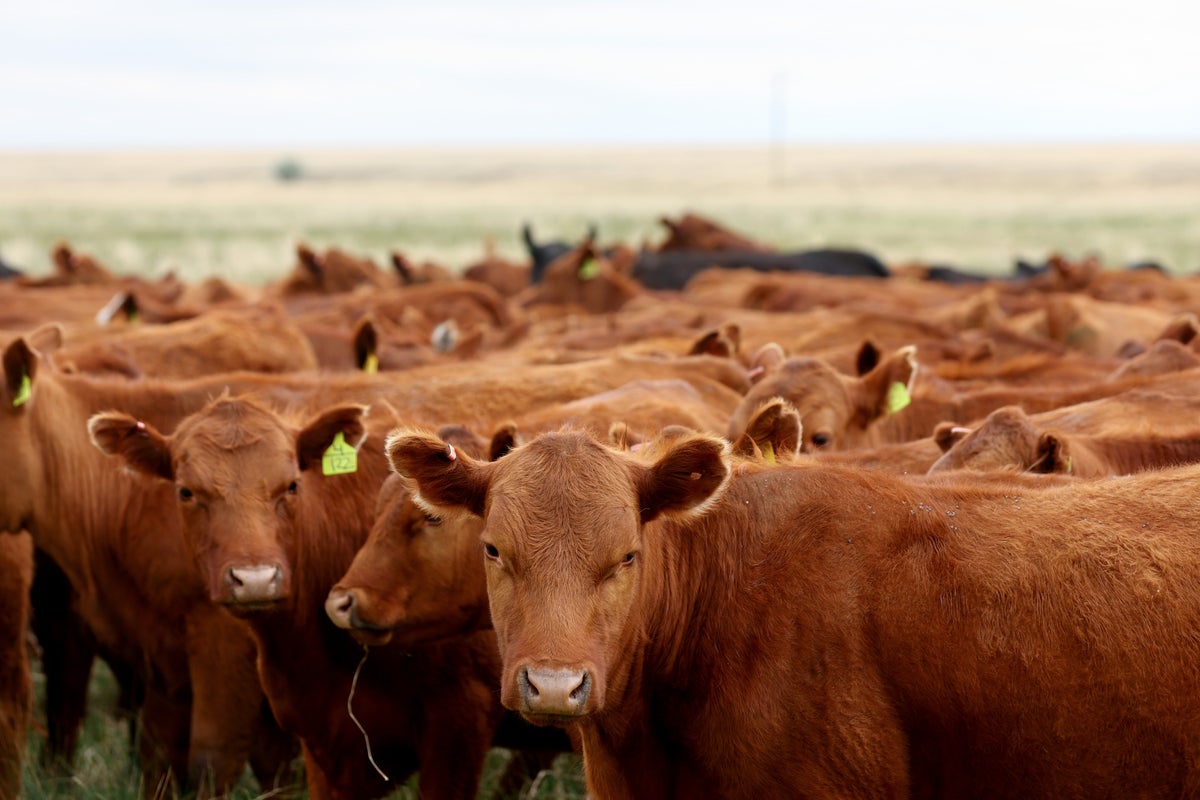The Cattle Investment Scandal: A Deep Dive into Alleged Fraud and Consequences
Overview of the Allegations
In a shocking turn of events, Brian McClain, a cattleman from Kentucky, has been accused of orchestrating a staggering $100 million Ponzi scheme. Claiming to investors that he could deliver impressive returns through the cattle business, McClain allegedly sold the concept of “ghost” cattle—cattle that didn’t exist—before his life came to a tragic end. Now, a complex legal battle is unfolding as creditors, former investors, and attorneys seek to unravel the fallout from this fraudulent scheme.
The Class Action Lawsuit
Following McClain’s death, which was reported as a suicide, attorneys Mark Bryant and his team from Bryant Law Center took significant steps to address the issue. They filed a class action lawsuit on behalf of Kentucky residents who claim they were defrauded by McClain.
The lawsuit targets three banks—Community Financial Services Bank, RABO AgriFinance, and Mechanics Bank—alleging they facilitated the scheme by offering financial backing while ignoring evident signs of wrongdoing. Such negligence led to devastating losses for numerous investors who placed their faith—and money—into McClain’s hands.
McClain’s Misleading Promises
The investigation into McClain’s enterprise reveals a troubling pattern. About six years prior, he began soliciting investors for his trio of companies: McClain Feed Yard Inc., McClain Farms Inc., and 7M Cattle Feeders Inc. He lured investors with the alluring promise of a 30% return on their investment, assuredly guaranteeing profits from the slaughter of cattle he claimed to possess.
The Reality Behind the Scheme
While it is true that McClain initially had real cattle and some early investors did see profits, the operation quickly devolved into the classic structure of a Ponzi scheme. Profits were paid to earlier investors using the funds from later investors rather than from legitimate earnings.
This deceitful cycle continued until February 2023, when McClain reported a drastic drop in cattle inventory—from over 88,000 head in December to below 38,000. When RABO AgriFinance became suspicious and ordered an inventory check, they uncovered a startling truth: only 7,461 head were found in Texas and 3,094 in Kentucky.
The Unraveling of the Operation
On the night of April 18, 2023, Chris Ward, a special ranger for the Texas and Southwestern Cattle Raisers Association, visited the 7M property hoping to investigate McClain’s missing cattle. His observations confirmed the suspicions—the supposed large herd was notably absent. The reality of the situation created a tipping point for McClain, who took his own life on the very day he was confronted about the discrepancies.
The Extent of the Fallout
Posthumously, McClain left behind a mess that now involves at least 102 creditors from various states, including Texas, Kansas, Kentucky, Iowa, and even investors from Alberta, Canada. His businesses have since shuttered operations, leaving many without any means of recovering their losses.
Through the class action lawsuit, claims emerged that RABO AgriFinance extended over $70 million in credit to McClain, despite having serious reservations about his recordkeeping and cattle ownership claims. Community Financial Services Bank allegedly allowed over 100 days of accounts being overdrawn by significant amounts, failing to act even as red flags waved vigorously around them.
Legal Battles Ahead
Mark Bryant emphasizes the moral and legal ramifications of this case, stating that innocent Kentuckians were misled and financially devastated by a system that favored profit over ethics. The legal journey to rectify these wrongs has just begun, as attorneys scramble to hold both McClain’s businesses and the involved banks accountable.
An Insight into the Clients and Management
To address the assets of McClain’s companies, Kent Rise, an attorney and CPA from Texas, has been appointed to manage the remnants of McClain’s enterprises and attempt to recover funds for creditors. Rise painted a grim picture during his visits to McClain’s properties, noting how dilapidated and poorly maintained they were, particularly given the substantial loans they had received.
In his assessment, Rise raised serious concerns about RABO AgriFinance and the other banks, questioning their lack of oversight and the blatant disregard for the warning signs that developed over the years.
Allegations of Negligence
The complaint filed by Rise in U.S. Bankruptcy Court points fingers at the banks for their roles in the whole affair. It claims that these institutions not only ignored numerous red flags during the lending process but also consciously acted in ways that enabled McClain’s fraudulent practices to flourish.
Rise notes that these banks prioritized their financial interests while failing to safeguard the community’s investments, suggesting a systemic issue with oversight in financial lending.
Community Impact
The ramifications of McClain’s alleged fraud extend beyond the immediate financial losses. For the affected individuals, the scandal reflects a broader failure of financial systems to protect investors, especially those who may not have had extensive experience in high-risk investment opportunities.
Recent events have triggered conversations around regulatory practices, transparency, and the need for stricter oversight to prevent similar schemes from taking root in the future. As the legal battles continue, many are left hoping for justice and recovery in the wake of a betrayal that has rocked their trust and faith in financial institutions.


